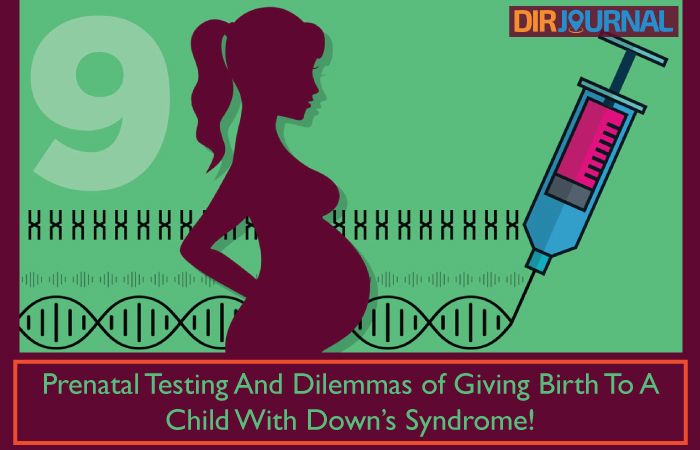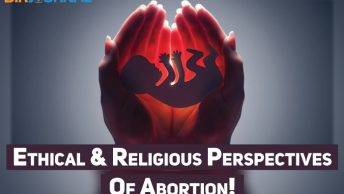Prenatal diagnosis is currently the most widespread application of technology and genetic knowledge. Along with the benefits that advancing technologies provide, they also give birth to new dilemmas. Researchers can now detect many health problems of an unborn child in the womb. While it is a good thing as it helps parents prepare well to receive such a child, this information also creates situations where parents face the wrenching decision of whether they should give birth to the child or terminate the pregnancy. They are left to decide if giving birth to such a child is an injustice to the child.
What about the ethics of prenatal testing, especially in Down syndrome? How do mothers experience the personal and ethical choices about prenatal testing? We should also be looking at the perspective of mothers of children with Down syndrome.
Society believes that it is a grave burden to raise a child with Down syndrome and that it is both medically appropriate and morally correct to take measures to ensure the child is not born. Because of few treatment options, testing is basically linked to the only option of ‘therapeutic’ abortion.
Recently, Gov. Sarah Palin gave birth to a son with Down syndrome. In spite of knowing very well what she is getting into, she announced that it is God’s blessing. This heartwarming pro-life story tells a lot about the woman’s strength and conviction in her capabilities as a woman and a mother.
The family made an announcement: “Trig is beautiful and already adored by us. We knew through early testing he would face special challenges, and we feel privileged that God would entrust us with this gift and allow us unspeakable joy as he entered our lives.” This has in a way proven to the world that Sarah Palin is a woman who truly walks the walk.
Trig Palin whose name means “brave victory” is one of the lucky few who got through. The screening tests that alert families in the early stages of the pregnancy cause most children with Down syndrome to be aborted and fewer to be born.
Statistics reveal that a very small percentage of couples continue pregnancies after a diagnosis of Down syndrome through prenatal testing. It is felt that these statistics are mainly the result of decisions made in haste and without adequate information about what Down syndrome is likely to mean for the child or even to themselves as parents.
Mothers worry about the cost of raising a Down syndrome child, about how the child will affect siblings and mainly how the child will cope. In fact, it has been seen that the older the parents are, the more they worry. Who is going to take care of my child when I am not around anymore? How is the child going to get along in this society?
Research shows that a vast majority of doctors are insensitive and push women to make decisions even while they are still reeling from the initial shock over the diagnosis. Women who have terminated their pregnancies say that they went through a lot, including questions about the ethics of termination that continue to haunt them. They also said that they would have kept the child if only they were more aware of things and not gone into panic mode and most of it due to being pushed into taking a decision.
Yes, it is not an easy task and it takes a lot of giving from the parents. As children, even the kids with Down syndrome may have to go through a lot of unpleasantness in the society. If we take the case of six-year-old Benjamin, he knows he is different from the others. His mother says that he gets himself ready in the morning and once when he came downstairs, she said to him, “Oh, look at you! You look so handsome today!” He said, “Mommy I’m not handsome, I’m different.” That, she says broke her heart. But she says that he is a happy child and she cannot think of life without him.
Parents relate stories of adjustment to the news of the child’s disability; compromised dreams and disappointment that gradually are replaced by hopefulness and realization that life continues ordinarily and normally. One mother said, “You don’t wake up every morning thinking “Oh my God, he’s got Down syndrome.” Most women who have a child with Down syndrome say that the child made their life richer and brought a lot of positive changes in their lives.
Interviews with adults with Down’s syndrome show that even as adults they are quite happy with themselves. They insist that their so-called “handicap” is only in the way society looks at them, not in who they are.
One pro-life supporter says, “Years ago, these kids were called mongoloid and they were institutionalized but now we find them with the use of advanced technology and kill them.”
Thousands of stories of surviving the so-called “crisis” and leading more satisfying and happier lives should help both expectant mothers and families understand that the grief and shock that follow a diagnosis are not predictive of the long-term future for them. Researchers challenge the idea that reducing the incidence of Down syndrome through termination is honorable and that people with Down syndrome would be welcomed and seen as valuable members of our community.
It is common and understandable for expectant mothers and fathers to feel anxious about their child. Nevertheless, does the possibility of a child with Down syndrome warrant despair? Is prenatal testing actually reinforcing an unjustifiable fear of disability?
As of now, not many women have an indication of how not horrible this situation is. Until these women are educated on this, they will continue to agonize on deciding to terminate such a pregnancy and even on bringing the child into the world. Either way, a woman has the right to make an informed decision.













